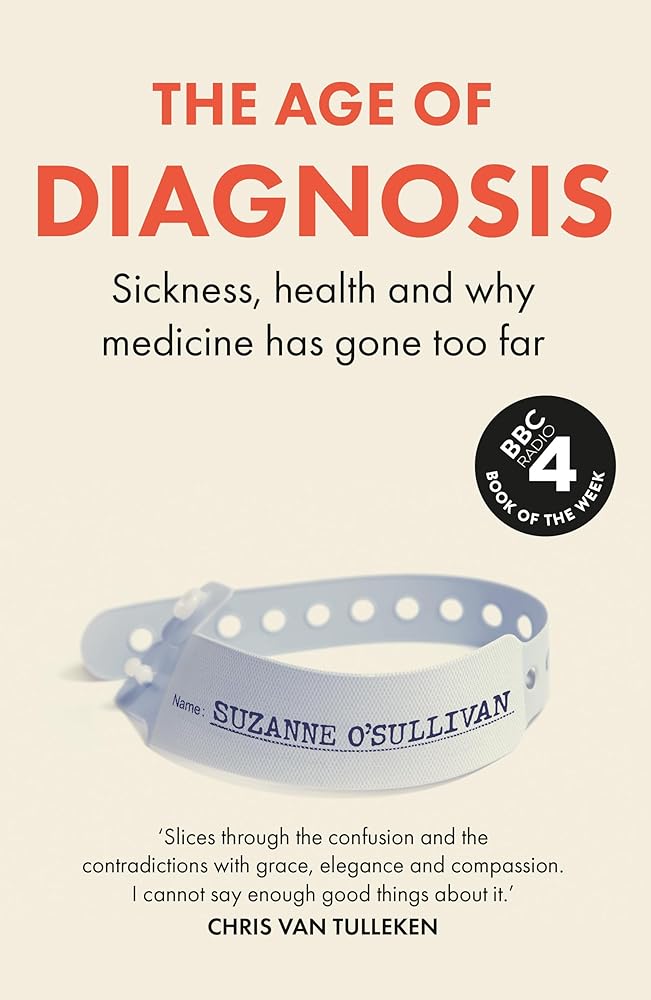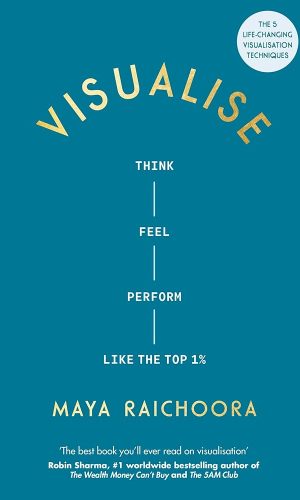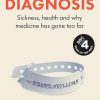The Age of Diagnosis: Sickness, Health and Why Medicine Has Gone Too Far
£12.30
‘Covers so many topics that have been troubling me but I haven’t been able to resolve myself – as a parent and a clinician. An absolutely absorbing read from start to finish.’ – CHRIS VAN TULLEKEN
‘A brilliant study of the dangers of overdiagnosis’ – GUARDIAN, book of the day
‘Compassionate and bracingly independent thinking’ – THE TIMES, best books of 2025
From autism to allergies, ADHD to long Covid, more people are being labelled with medical conditions than ever before. But can a diagnosis do us more harm than good?
The boundaries between sickness and health are being redrawn. Mental health categories are shifting and expanding all the time, radically altering what we consider to be ‘normal’. Genetic tests can now detect pathologies decades before people experience symptoms, and sometimes before they’re even born. And increased health screening draws more and more people into believing they are unwell.
An accurate diagnosis can bring greater understanding and of course improved treatment. But many diagnoses aren’t as definitive as we think. And in some cases they risk turning healthy people into patients. Drawing on the stories of real people, as well as decades of clinical practice and the latest medical research, Dr Suzanne O’Sullivan overturns long held assumptions and reframes how we think about illness and health.
Read more
Additional information
| Publisher | Hodder & Stoughton (18 Mar. 2025) |
|---|---|
| Language | English |
| File size | 912 KB |
| Text-to-Speech | Enabled |
| Screen Reader | Supported |
| Enhanced typesetting | Enabled |
| X-Ray | Not Enabled |
| Word Wise | Enabled |




by Jenny
In this thoughtful, wise and compassionate book, Dr O’Sullivan examines what she terms both the science and art of diagnosis. With ever more sophisticated tools at their disposal, doctors can identify more conditions, and we all expect them to be able to do so. While emphasising the importance of accurate diagnosis she warns against the danger of overdiagnosis, of drawing people with mild versions of medical problems into ever-widening diagnostic groups.
She explores ‘how modern medicine is redrawing the boundaries between sickness and health and what impact it is having on our lives’.
by touristas
A very important book talking about the current epidemic of overdiagnosis, wrong diagnoses and overmedicalisation. Few medical diagnoses of complex conditions are set in stone and most of these diagnoses can be challenged. Meeting the person’s actual needs must be a priority instead of just giving them a questionable label.
by POM
The lastest book by the author follows her usual pattern of describing experiences with patients, conclusions she reaches from the encounters, and essentially her learning about humanity and her own growth through the interactions. Her real skill though is the ability to translate complex histories and ideas into relatable and very readable stories.
by Jane McCready
What a sensible and insightful book, especially the chapter on autism. Thanks to the author for speaking up on this. If my severely* autistic son, who’ll need 24/7 care for life, has the same diagnosis as Bill Gates, then we have truly jumped the shark on autism diagnoses.
*and no – before I’m trolled for even using the word ‘severe’ it’s not just his learning disability which makes him severe, his actual autistic diagnostic traits are also severe: his stims, his perseverative and repetitive behaviours, his lack of social understanding, his communication impairments.
by POM
The latest book by the author follows her usual pattern of describing experiences with patients, conclusions she reaches from the encounters, and essentially her learning about humanity and her own growth through the interactions. Her real skill though is the ability to translate complex histories and ideas into relatable and very readable stories.
by Mazon
Written by an epilepsy specialist with no lived experience of autism or ADHD. Harmfully reinforcing the myths. A diagnosis is not harmful. It is life-changing for the better. AVOID!
by stephenrichard
“Let’s leave diagnosis for those who are unequivocally sick and find a way to be more tolerant of difference and imperfections that still allows people to live an unencumbered life.” argues Suzanne O’Sullivan
Suzanne O’Sullivan has written an incredibly important book that is truly needed at this point in time. This is a book that questions society’s need to label every individual who feels that their life and feelings and health don’t fit a perceived norm. Everyone is demanding perfection of themselves.
The argument is clearly made that with so many being diagnosed of diseases/”disorders’, it does not always lead to substantial improvements in longterm health.
Redrawing boundaries and redefining symptoms between sickness and health is impacting greatly on society.
Suzanne O’Sullivan draws our attention to the need for greater balance in diagnosis and treatment and how predictive medicine can advise people of potential health problems which may never occur or take many years to show but in the meantime lead to years of fear and waiting for symptoms. The book identifies that diagnoses have the power to create illness when there is no disease.
The book explores range of conditions; ADHD , autism, Long Covid, Huntingdon’s disease.
Anecdotal stories from individuals explore the impact positive and negative of diagnosis. With the rise of genetic testing, she expresses concerns but also acknowledges benefits. But it is the lack of definitive evidence and stretching the borders of diagnosis that are truly put into the spotlight to make us question the broader individual and societal impact.
Suzanne O’Sullivan writes with compassion and challenge and ultimately wants the best care for all in society .
This is a powerful book- one you will need to talk about and reflect upon especially if you have family members with certain diagnosed conditions. This is a book that isn’t against diagnosis but questions how diagnosis is made; the science and research behind the ever changing supposed symptoms /evidence which define a condition; how does society actually support the broader community after a diagnosis( if at all) ; the impact on individuals who are suffering extreme and hard symptoms of a condition and how the broadening of diagnoses is leading to diluting of funding and support for them; and the broad impaction lives by defining individuals with a “label “
Highly readable – a book that opens the door to a wider debate and challenges us to question all we may be told and the impact on ourselves and loved one.
This book will be put alongside Ultra Processed People as a must read of 2025
The final points that this book is written before the impact of AI on medicine and health care in the future certainly left me with an undercurrent of concern if diagnoses could be made via computer data, algorithms etc
by Katie
An exceptional and thought-provoking book. It explores a complex subject with intelligence, nuance, and deep compassion. Written with great sensitivity and thoughtfulness, the stories she tells are deeply moving. She is a masterful storyteller and the balance of personal narratives with insightful analysis, makes the book not only engaging but profoundly relevant.
Despite the depth of its ideas, the book remains incredibly accessible. The writing is clear, engaging, and easy to read, making complex medical and psychological concepts understandable without ever feeling reductive.
This is an important, compassionate, and beautifully written book. It certainly challenged me to think more deeply about the ways we define health, illness, and identity. Highly recommend.
by hugh mcinnes
This is a marvellous book, everyone should read it